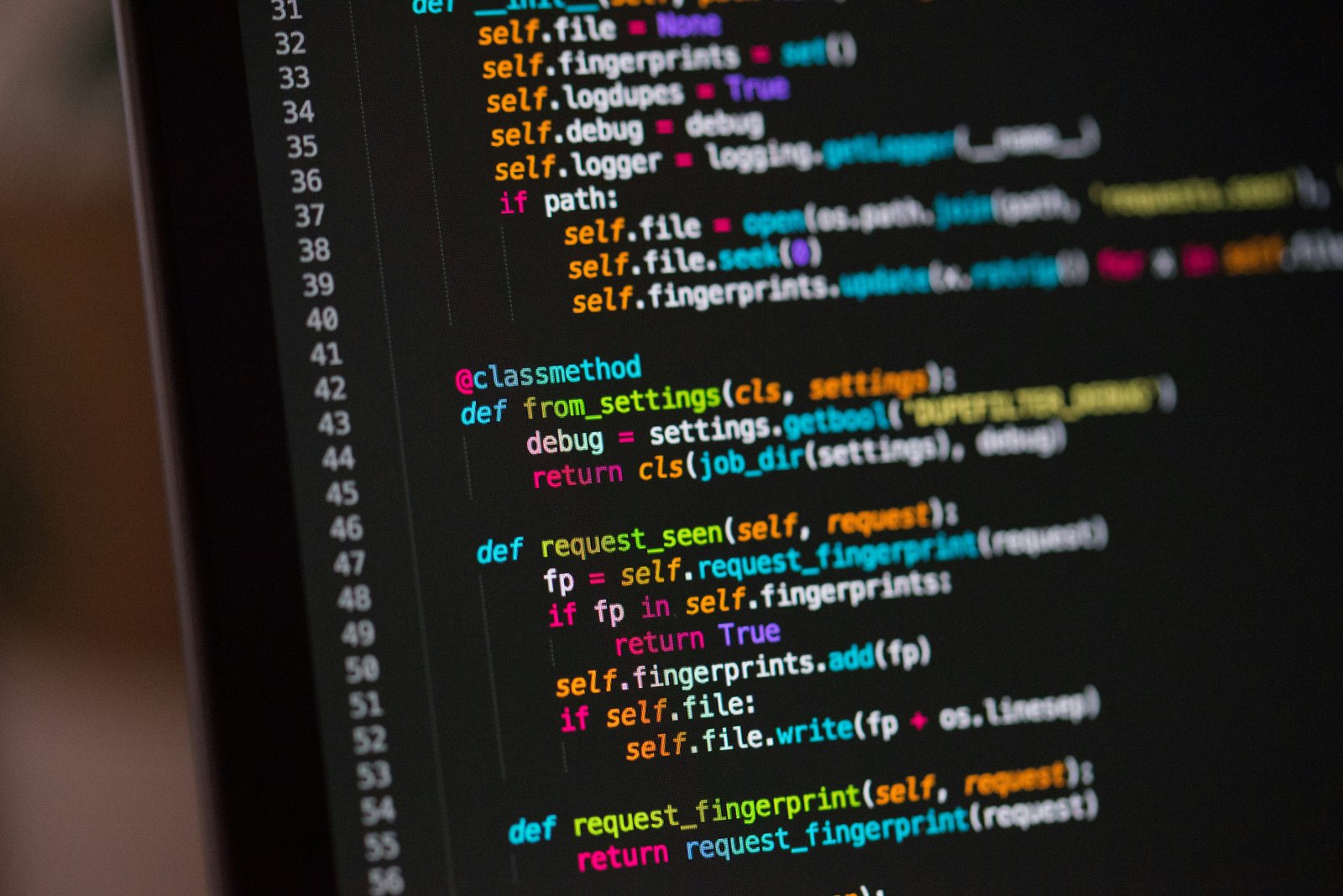
AI and SEO: How Artificial Intelligence is Transforming Search
AI and SEO: How Artificial Intelligence is Transforming Search
.jpg)
AI and SEO: How Artificial Intelligence is Transforming Search
Unleash the power of AI to boost your SEO strategy and stay ahead in the ever-evolving digital landscape.
Understanding the Role of AI in SEO
Artificial intelligence is no longer a futuristic concept; it's actively reshaping the SEO landscape. Understanding its role is crucial for staying ahead of the curve and maximizing your online visibility. AI is impacting nearly every facet of SEO, from keyword research and content creation to technical optimization and user experience.
One of the most significant ways AI is changing SEO is through enhanced search understanding. Google's algorithms, powered by AI, are becoming increasingly sophisticated at interpreting user intent. They can now decipher the nuances of language, including synonyms, context, and even the emotional tone behind a search query. This means keyword stuffing and other outdated tactics are less effective than ever. Instead, focusing on creating high-quality, relevant content that truly addresses user needs is paramount.
AI is also automating tedious SEO tasks. Tools powered by machine learning can perform keyword research, identify content gaps, and even generate optimized content outlines. This frees up SEO professionals to focus on strategic planning and creative content development. Think of AI as a powerful assistant, handling the repetitive tasks while you focus on the bigger picture.
- Automated Content Optimization: AI can suggest improvements to existing content, such as optimizing title tags, meta descriptions, and heading structures.
- Personalized Search Results: AI algorithms personalize search results based on user history, location, and preferences, meaning SEO strategies must consider individual user experiences.
- Predictive Analysis: AI can analyze search trends and predict future changes, allowing SEO professionals to proactively adapt their strategies.
By understanding how AI is transforming search, you can leverage its power to improve your SEO performance. Embracing AI-powered tools and strategies is no longer optional; it's essential for staying competitive in the ever-evolving world of search engine optimization.
AI-Powered Keyword Research and Content Optimization
Say goodbye to tedious keyword spreadsheets and hello to AI-powered insights. Artificial intelligence is revolutionizing keyword research by going beyond simple volume and difficulty metrics. Sophisticated algorithms can now analyze search intent, identify long-tail keywords with high conversion potential, and even predict emerging trends. Tools powered by natural language processing (NLP) can understand the nuances of language, helping you uncover semantically related keywords that expand your reach and attract a more targeted audience.
AI doesn't stop at keyword discovery. Content optimization is also getting a significant upgrade. AI-driven writing assistants can analyze top-performing content for specific keywords, suggesting improvements to your existing articles and providing guidance on creating new, high-ranking content. These tools can analyze factors like readability, keyword density, and overall content structure, offering actionable recommendations to boost your on-page SEO.
Imagine having an AI assistant that can:
- Identify content gaps and suggest topics that resonate with your target audience.
- Generate optimized title tags and meta descriptions that improve click-through rates.
- Analyze competitor content to identify opportunities for improvement and differentiation.
- Suggest internal linking strategies to enhance website navigation and boost SEO.
By leveraging AI for keyword research and content optimization, you can streamline your workflow, create more effective content, and ultimately, achieve higher search rankings. This frees up your time to focus on strategic aspects of your SEO campaign, like building high-quality backlinks and engaging with your audience.
The Impact of AI on Content Creation and Quality
Artificial intelligence is revolutionizing content creation, impacting both the process and the final product. While some fear AI will replace human writers, the current reality is more nuanced. AI serves as a powerful tool, augmenting human creativity and streamlining workflows, rather than replacing them entirely.
One of the most significant impacts is the increased efficiency AI brings to content generation. Tools powered by natural language processing (NLP) can assist with tasks like:
- Generating topic ideas and outlines: AI can analyze search trends and identify content gaps, providing writers with a solid starting point.
- Automating repetitive writing tasks: Think product descriptions, meta descriptions, or even short-form social media copy. AI can handle these efficiently, freeing up writers for more strategic work.
- Repurposing existing content: Transforming a blog post into a script for a video or a series of social media updates becomes significantly easier with AI assistance.
- Improving readability and clarity: AI-powered grammar and style checkers go beyond simple error detection, offering suggestions for improved sentence structure and vocabulary.
However, the impact on content quality is a more complex issue. While AI can generate grammatically correct and even engaging text, it can sometimes lack the depth, creativity, and nuanced understanding that a human writer brings. Furthermore, concerns around plagiarism and the potential for AI-generated content to be overly optimized for search engines at the expense of user experience remain valid. Therefore, human oversight is crucial. Editors and content strategists will play an even more vital role in ensuring accuracy, originality, and alignment with brand voice and values. Ultimately, AI’s greatest contribution to content quality lies in its ability to empower human writers to focus on what they do best: strategic thinking, creative storytelling, and connecting with their audience on an emotional level.
AI-Driven Technical SEO: Site Speed, Site Structure, and More
Technical SEO often feels like the backend wizardry of search optimization, but its impact is undeniable. AI is now stepping in to automate and enhance these crucial tasks, taking the complexity out of technical optimization and freeing up SEOs to focus on strategy.
One major area where AI shines is site speed optimization. Traditional methods involve manual analysis and tweaks, but AI-powered tools can identify bottlenecks, predict potential issues, and even suggest solutions automatically. Imagine an AI analyzing your website's code and recommending optimal image compression settings, caching strategies, and even server configurations, all designed to shave precious milliseconds off your load times. This not only improves user experience but also directly boosts your search ranking, as Google considers site speed a critical factor.
AI is also revolutionizing website structure and navigation. By analyzing user behavior and content relationships, AI can suggest optimal internal linking structures, identify orphaned pages, and even predict which pages are most likely to convert. This intelligent automation helps search engines crawl and index your site more efficiently, ensuring that your most valuable content is easily discoverable.
Beyond these core areas, AI is impacting other aspects of technical SEO, including:
- Automated image optimization: AI can automatically generate alt text, compress images without significant quality loss, and even select the best image format for optimal performance.
- Schema markup generation: AI simplifies the implementation of schema markup, which helps search engines understand the context of your content, leading to rich snippets and improved visibility.
- Content quality checks: AI-powered tools can analyze content for readability, grammar, and even plagiarism, ensuring that your website meets Google's quality guidelines.
By embracing these AI-driven solutions, you can streamline your technical SEO efforts, improve website performance, and ultimately achieve higher search rankings. It’s not about replacing the human element, but empowering SEOs with intelligent tools to achieve better results.
The Rise of AI-Powered SEO Tools and Platforms
The integration of AI into SEO is no longer a futuristic concept; it's rapidly becoming the industry standard. A new wave of AI-powered SEO tools and platforms is empowering marketers to optimize their strategies with unprecedented efficiency and precision. These tools go beyond simple keyword research and delve into complex tasks, offering sophisticated insights and automation capabilities.
One of the most significant impacts of AI is on content creation. Tools now exist that can generate topic ideas, create content outlines, and even write entire articles, all while adhering to SEO best practices. While human oversight and editing remain crucial, these tools can significantly speed up content production and help overcome writer's block. Furthermore, AI-powered platforms can analyze existing content, identifying areas for improvement in terms of keyword optimization, readability, and overall SEO performance.
Beyond content, AI is revolutionizing other aspects of SEO, including:
- Technical SEO: AI can crawl websites and identify technical issues, such as broken links, slow loading speeds, and mobile-friendliness problems, much faster and more comprehensively than manual audits.
- Link Building: AI algorithms can analyze backlink profiles, identify high-quality link opportunities, and even automate outreach campaigns.
- Rank Tracking and Keyword Research: AI-driven tools can track keyword rankings with greater accuracy and provide insights into competitor strategies, allowing for more informed keyword targeting.
- User Experience Analysis: AI can analyze user behavior on websites, identifying areas where users struggle or drop off, allowing for targeted improvements to enhance UX and ultimately boost SEO.
While the sheer power of these tools can feel overwhelming, their purpose is to augment, not replace, human expertise. By automating tedious tasks and providing data-driven insights, AI empowers SEO professionals to focus on strategic decision-making and creative campaign development. The future of SEO is undeniably intertwined with AI, and embracing these advancements is key to staying ahead of the curve.
How AI is Changing Search Engine Algorithms
Search engine algorithms are no longer static sets of rules. Thanks to AI, they're evolving into intelligent systems capable of understanding and responding to user intent with increasing accuracy. This shift is fundamentally changing how websites rank and how SEO professionals approach optimization.
One key area of impact is the rise of semantic search. AI empowers search engines to comprehend the context and meaning behind a query, moving beyond simple keyword matching. Think about it: searching for "best coffee shops near me" doesn't just trigger results based on those exact words. Google now understands your location, the implied desire for a nearby cafe, and even factors like your past search history to personalize the results. This is made possible by natural language processing (NLP), a branch of AI that enables computers to understand human language.
Furthermore, AI is enhancing the effectiveness of existing ranking factors. For example, user experience signals like bounce rate, time on page, and click-through rate are becoming even more critical. AI can analyze these metrics to determine how well a page satisfies user intent, rewarding websites that provide valuable and engaging content. This also means a greater emphasis on aspects like site speed, mobile-friendliness, and overall accessibility.
RankBrain, Google's AI-powered algorithm, exemplifies this change. It can interpret ambiguous or complex searches and learn from user behavior to continuously refine its understanding of search queries. This has implications for keyword research and content creation. Instead of focusing solely on specific keywords, SEO professionals now need to optimize for topics and concepts, ensuring their content comprehensively addresses user needs.
Ultimately, AI is pushing search engine algorithms towards a more sophisticated and user-centric model. The future of SEO lies in understanding these advancements and adapting strategies to align with the evolving intelligence of search.
The Future of SEO in an AI-Driven World: Predictions and Strategies
The integration of AI into search is not a fleeting trend; it's a fundamental shift reshaping the SEO landscape. Predicting the future with absolute certainty is impossible, but by analyzing current trends, we can anticipate the key changes and prepare effective strategies.
One clear prediction is the continued rise of semantic search. AI's ability to understand context and user intent will deepen, moving beyond keyword matching to true meaning extraction. This means focusing on comprehensive, topically rich content that thoroughly answers user queries. Think holistic content hubs rather than isolated pages targeting single keywords.
Furthermore, user experience will become even more critical. AI algorithms are increasingly factoring in user signals like dwell time, bounce rate, and click-through rate. This emphasizes the need for technically sound websites with seamless navigation, fast loading speeds, and mobile-first design. Prioritizing accessibility and providing a positive user experience will be paramount for ranking well.
Personalization is another key area of evolution. AI allows search engines to tailor results based on individual user preferences, search history, and even location. This means SEO strategies must shift from broad targeting to understanding and catering to specific user segments. Leveraging data analytics and user feedback will be crucial for delivering personalized experiences that resonate with target audiences.
To thrive in this AI-driven future, SEOs need to adopt the following strategies:
- Embrace AI tools: Utilize AI-powered tools for keyword research, content optimization, and competitor analysis to gain valuable insights and streamline workflows.
- Focus on E-E-A-T: Emphasize Expertise, Experience, Authoritativeness, and Trustworthiness in your content to build credibility and align with Google's quality guidelines.
- Structure data strategically: Implement schema markup to help search engines understand the context of your content and improve visibility in rich results.
- Monitor and adapt: Continuously track algorithm updates and user behavior to stay ahead of the curve and refine your SEO strategy accordingly.
By embracing these changes and proactively adapting, SEOs can harness the power of AI to achieve greater visibility, connect with their target audience, and drive sustainable organic growth.
Frequently Asked Questions
Will AI replace SEO professionals?
While AI is transforming SEO and automating certain tasks, it's unlikely to fully replace human SEO professionals. AI excels at data analysis, keyword research, and content optimization suggestions, but it lacks the strategic thinking, creativity, and nuanced understanding of user intent that humans bring. Instead of replacing jobs, AI will likely augment the role of SEO professionals, freeing them from tedious tasks and allowing them to focus on higher-level strategy, content creation, and relationship building. The most successful SEO professionals will be those who effectively leverage AI tools to enhance their work.
What are the best AI SEO tools available?
Pinpointing the absolute "best" is subjective and depends on your specific needs and budget. However, some popular and powerful AI SEO tools currently available include SurferSEO, Jasper, Frase, MarketMuse, Scalenut, and Copy.ai for content optimization and generation. For keyword research and analysis, consider tools like Semrush, Ahrefs (which are incorporating more AI features), and KeywordInsights.ai. For technical SEO and site auditing, tools like Screaming Frog are being augmented with AI-powered features. It's important to research and compare features to find the tools that best fit your workflow and SEO goals. The AI SEO landscape is constantly evolving, so staying updated on the latest tools and their capabilities is crucial.
How can I integrate AI into my current SEO strategy?
Integrating AI into your SEO strategy can be done incrementally. Start by experimenting with AI-powered keyword research tools to discover new opportunities and understand search intent better. Utilize AI content optimization tools to improve content quality, readability, and relevance to target keywords. Consider AI-driven tools for technical SEO audits to identify and fix website issues faster. Explore AI-powered analytics platforms to gain deeper insights into user behavior and campaign performance. Finally, consider using AI for tasks like content summarization, meta description generation, and competitor analysis to boost efficiency. Remember to always review and refine AI-generated output to maintain quality and align with your brand voice.
What are the ethical considerations of using AI in SEO?
Using AI in SEO raises several ethical considerations. Over-reliance on AI-generated content can lead to low-quality, unoriginal, and potentially plagiarized content, violating search engine guidelines and harming user experience. Bias in training data can result in AI perpetuating harmful stereotypes or excluding certain groups in search results. Lack of transparency in how AI algorithms operate can make it difficult to understand why certain content ranks higher, potentially leading to unfair advantages or manipulation. Furthermore, the potential for AI-driven automation to displace human SEO professionals raises concerns about job security. Finally, the use of AI for manipulative practices like creating fake reviews or manipulating search rankings undermines the integrity of search engines and erodes user trust.






